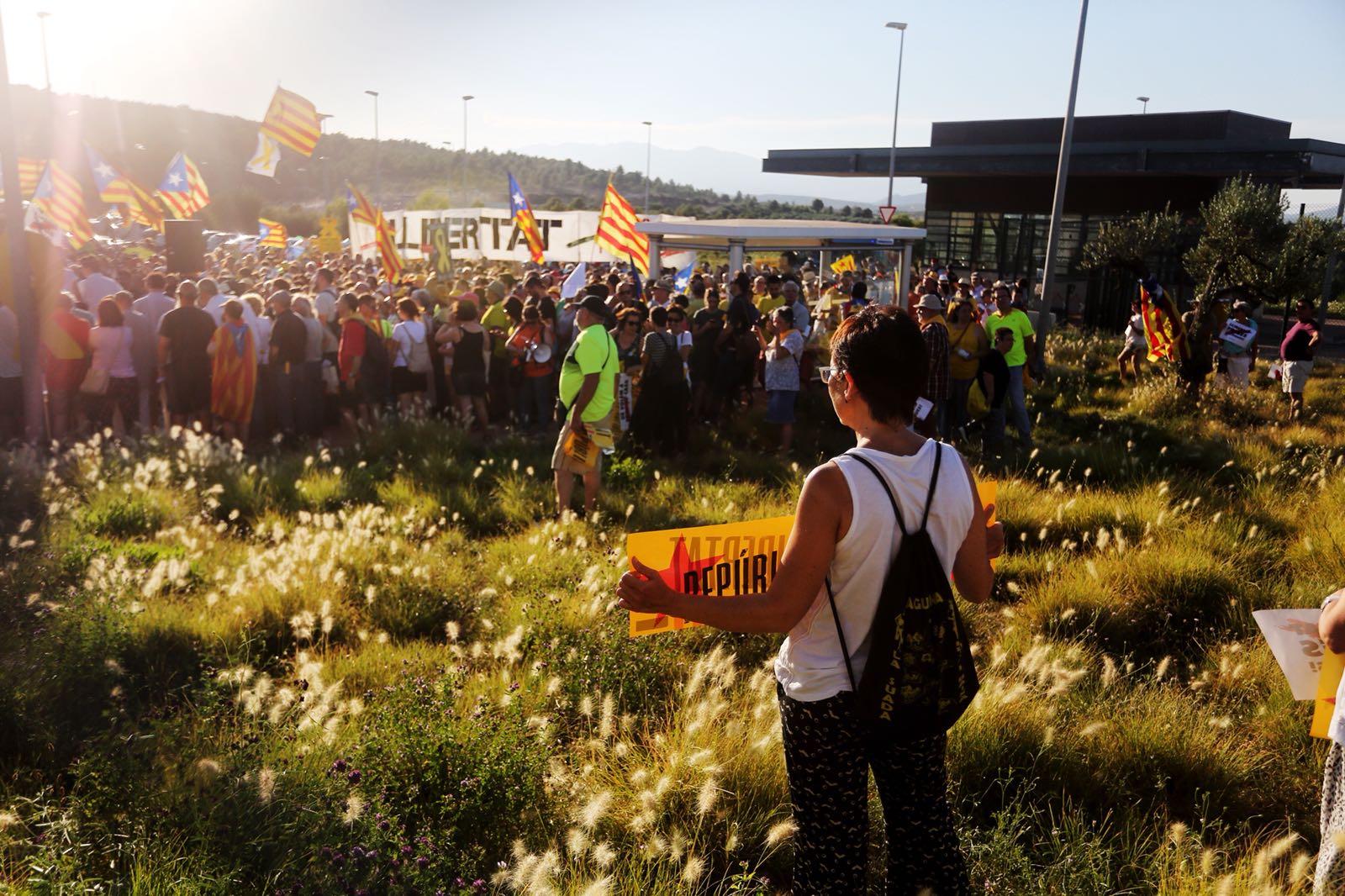Catalonia's government and members of parliament gave their full attention and respect on Wednesday to the political prisoners, coinciding with the transfer of six of those prisoners - Oriol Junqueras, Raül Romeva, Jordi Sànchez, Jordi Cuixart, Carme Forcadell and Dolors Bassa - from Madrid jails to two Catalan penitentiaries. The support shown for the jailed pro-independence politicians was a powerful statement.
The arrival of the political prisoners in Catalonia - with the transfer of Josep Rull, Jordi Turull and Joaquim Forn still awaited - was, however, no celebration, but an opportunity to restate demands. Catalan president Quim Torra and a great number of his ministers went to the Lledoners penitentiary, in central Catalonia, and the speaker of Parliament, Roger Torrent, went to the Puig de les Basses prison centre near the northern city of Figueres, where numerous Catalan deputies were also present. All speeches made demanded the release of the prisoners. Some linked it publicly to the materialization of the Catalan Republic, such as the president of the Catalan National Assembly (ANC) civil group, Elisenda Paluzie.
The independence movement has shifted up a gear with the arrival of the political prisoners. For one, in Parliament, the governing JxCat and ERC parties agreed with the third pro-independence party the CUP on a motion to reiterate the "political objectives" of the Republic (to be voted on Thursday); meanwhile, in the protests at the gates of both prisons, estelada independence flags reappeared, after months in which almost all the symbolic protagonism has belonged to the colour yellow, the colour of liberty for the prisoners. These are little signals. And all this takes place shortly before Monday's meeting between Torra and the Spanish PM, Pedro Sánchez, in an encounter at which the Catalan leader will bring up the issue of self-determination.
The political prisoners are still deprived of their freedom, but with their transfer to Catalonia, pieces have shifted on the chessboard, and Catalan politics has gained some room to move. That is what it started to show today. Another small instance: Junqueras, Romeva, Sànchez and Cuixart did not arrive at Lledoners in police wagons, but in two Volkswagen peoplemovers without any police identification, escorted by two patrol cars of the Catalan Mossos police. The case of Carme Forcadell and Dolors Bassa was not the same, because they had made their journey direct from Madrid in Civil Guard vehicles.
The welcome given to the political prisoners has had a political impact in Catalonia that has gone beyond the independence movement, and members of the non-aligned leftist Commons group were also present, for example, deputy-mayor of Barcelona Jaume Asens, who recently visited Junqueras along with Podemos leader, Pablo Iglesias. Ex-president Artur Mas was also seen, after having separated himself from day-to-day politics for the last few months.
There was one incident which slightly rarefied the transfer of the political prisoners: on Wednesday at the prison of Zuera (Zaragoza), where the convoy of Junqueras, Romeva and the Jordis made a stop, on several occasions calls of "Long live Spain" were heard resounding from the centre's public address system.


